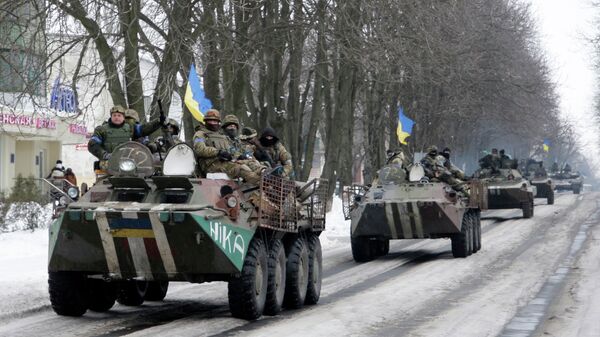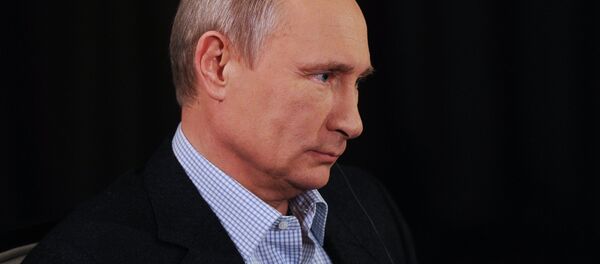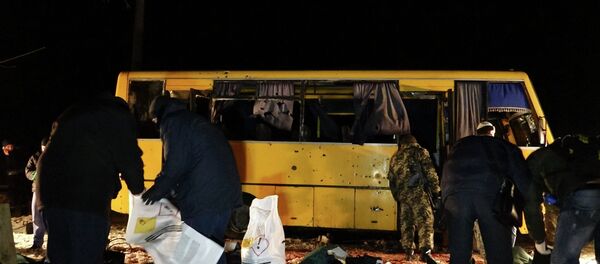“Current advance of the ‘war party’ is clearly timed before the upcoming EU Foreign Affairs Council meeting on January 19,” the statement published on foreign ministry’s website reads.
The statement highlights also that similar attempts “connected with clear provocations (like in a situation with the Malaysian Boeing and shelling of a bus near Volnovakha) usually happen before the European Union events and other western countries’ meetings, where the situation in Ukraine is discussed.”
"We strongly urge each member of the international community to demand Ukrainian authorities move away from the logic of confrontation [and] unconditionally renounce the policy of military suppression in southeastern Ukraine," the ministry said in a message.
According to the Russian ministry's statement posted on its website, Moscow also calls on the international community to push for Ukraine's fulfillment of its commitments and initiation of full-fledged constitutional reform with equal participation of the country's regions.
Moscow is doing everything in its power to make sure the Contact Group on Ukrainian reconciliation meets early next week and is calling on all participants to avoid another breakdown, the Russian Foreign Ministry has stressed.
"We are doing everything in our power for the Contact Group to convene early next week. We are urging its members and all those, influencing the situation, to prevent another breakdown [in talks]," the ministry said in a statement Sunday.
According to the statement, representatives of the self-proclaimed Donetsk and Luhansk People's Republics (DPR and LPR) arrived in Minsk on Friday for scheduled talks on the Ukrainian crisis.
"However, Ukrainian representatives did not appear in the Belarusian capital and the meeting was disrupted," the statement said.
The Russian Foreign Ministry called for an immediate return to practical work within the Contact Group for a "comprehensive implementation" of the Minsk agreements.
The agreements were signed last year in September. The first one stipulated a ceasefire between DPR, LPR and Kiev, which launched a military operation against independence supporters in the Donetsk and Luhansk regions last spring.
Despite the agreements, fighting has continued in southeastern Ukraine and clashes between independence fighters and Kiev forces have intensified in the past few weeks, particularly in the area around the city of Donetsk.
Since the beginning of the military conflict in eastern Ukraine last year in April, Kiev and the West have repeatedly accused Russia of intervening in the Ukrainian crisis, going as far as to claim that Moscow has sent troops and weapons to independence supporters in eastern Ukraine. However, the claims were not supported with any evidence.
During his September visit to the United States, Ukrainian President Petro Poroshenko requested lethal military assistance from the Obama administration, but Washington refused to grant it.
Moscow has repeatedly denied any involvement in Ukraine's internal affairs, urging Kiev to settle the conflict peacefully through dialogue. Russia has significantly contributed to the Ukrainian peace process by participating in the Minsk Contact Group meetings and attending the Normandy format talks on Ukrainian reconciliation.
A new round of negotiations on the Ukrainian crisis in the Normandy format, which comprises Russia, Ukraine, Germany and France, is expected take place at the end of January in Kazakhstan's capital, Astana.



